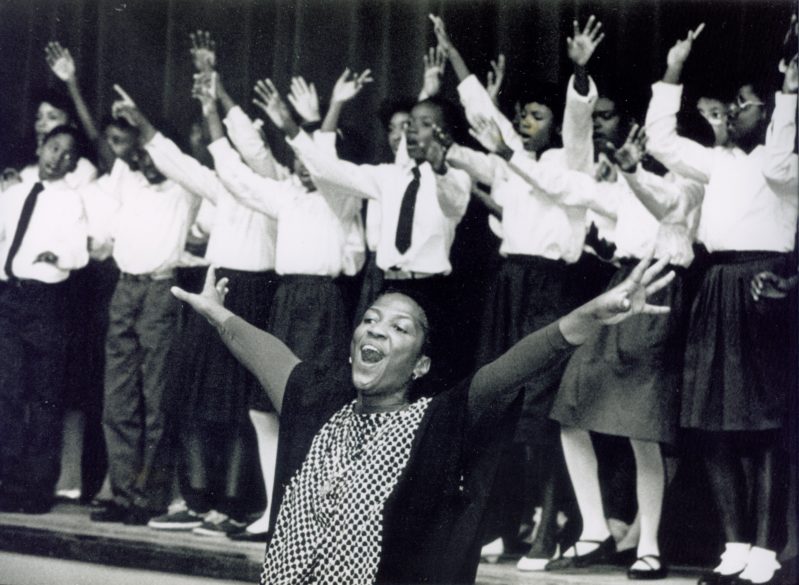Editor’s note: This collection of leaders of African descent on the Road to Sainthood is from the Subcommittee on African American Affairs – the official voice of the African American Catholic community. The subcommittee attends to the needs and aspirations of African American Catholics regarding issues of pastoral ministry, evangelization, social justice, worship, development of leaders and other areas of concern. For more resources visit: www.usccb.org/committees/african-american-affairs
Venerable Pierre Toussaint (1776-1853)
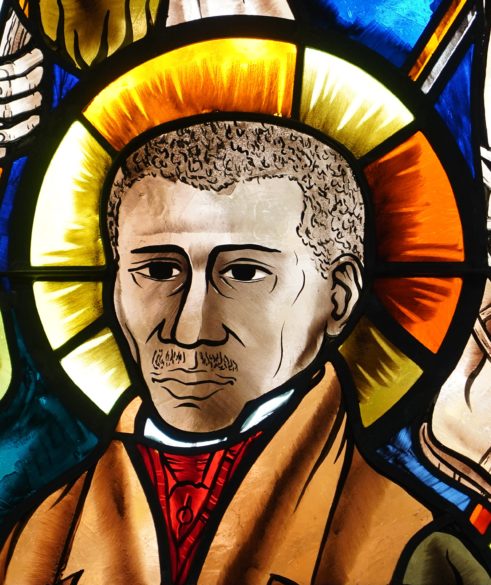
Venerable Pierre Toussaint, a philanthropist and founder of many Catholic charitable works, was born a slave in Haiti and brought from Haiti to New York as an apprentice under a popular hairstylist in the city. He eventually became the most sought-after hairdresser of high society women. Upon the death of his master, he gained his freedom and quickly succeeded as one of the country’s first black entrepreneurs. He became quite wealthy, but instead of spending lavishly on himself, he supported the Church and the poor. He and his wife sheltered orphans, refuges, and others out on the streets in their home. He founded one of New York’s first orphanages and raised money for the city’s first cathedral. During yellow fever epidemics, Toussaint would risk his life to help others by nursing the sick and praying with the dying.“I have never felt I am a slave to any man or woman but I am a servant of Almighty God who made us all. When one of his children is in need, I am glad to be His slave.”
Servant of God Mother Mary Elizabeth Lange (1784-1882)
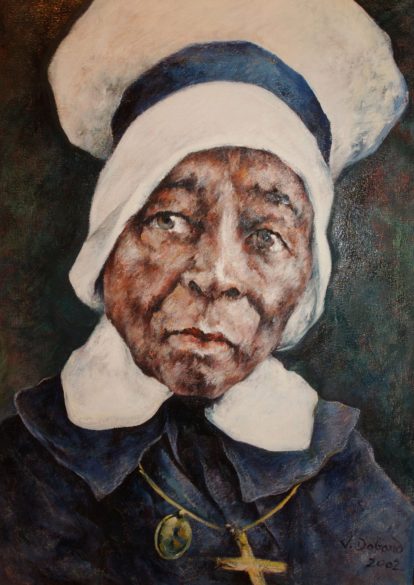
Servant of God Mother Mary Lange was born Elizabeth Lange, a native of the Caribbean, and believed to be Cuban born of Haitian descent. She was the foundress and first Superior General of the Oblate Sisters of Providence (1829-1832), the first religious congregation of African American women in the history of the Catholic Church. On July 2, 1829, Elizabeth and three other women professed their vows and became the Oblate Sisters of Providence with the goal of educating and evangelizing African Americans. They educated youth and provided a home for orphans. Freed slaves were educated and at times admitted into the congregation. They nursed the terminally ill during the cholera epidemic of 1832, sheltered the elderly, and served as domestics at St. Mary’s Seminary. Mother Mary Lange practiced faith to an extraordinary degree. It was her deep faith – in close union with Jesus – which enabled her to persevere against all odds. She lived through disappointment and opposition until God called her home in 1882 at the St. Frances Convent in Baltimore, Maryland.
Venerable Henriette Delille (1813-1862)
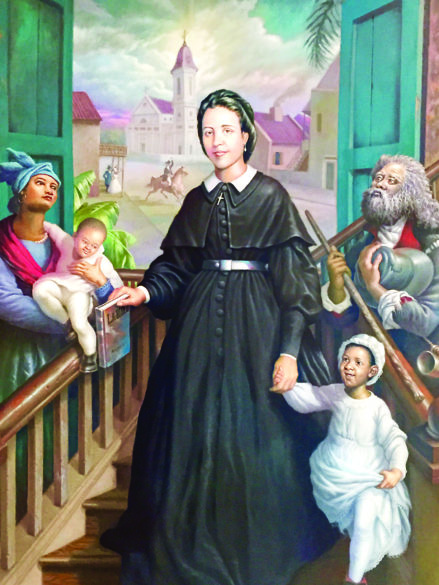
Venerable Henriette Delille was born in New Orleans, Louisiana, where she would live her entire life. For the love of Jesus and responding to the Gospel’s mandate, she was determined to help those in need. Henriette was also a person who suffered as she made her way through life, and she bore many crosses. She taught those around her that sanctity can be attained in following the path of Jesus. It was in this manner that she dealt with her troubles and major obstacles to achieve her goals. Some of the troubles Henriette met were the resistance of the ruling population to the idea of a black religious congregation; the lack of finances to do the work; the taunts and disbelief of people in her mission; the lack of support from both the Church and civil authority; and poor health.
However, Henriette practiced heroic virtue. She had faith, lived in hope, and practiced love. She was compassionate, forgiving, and merciful. She believed in justice and was not afraid to do what was right in the eyes of God. God blessed her efforts and, in 1842, she founded the Congregation of the Sisters of the Holy Family. Henriette died 20 years later on November 17, 1862. Her funeral was held at St. Augustine Church. Her obituary stated, “… Miss Henriette Delille had for long years consecrated herself totally to God without reservation to the instruction of the ignorant and principally to the slave.”
Venerable Father Augustus Tolton (1854-1897)
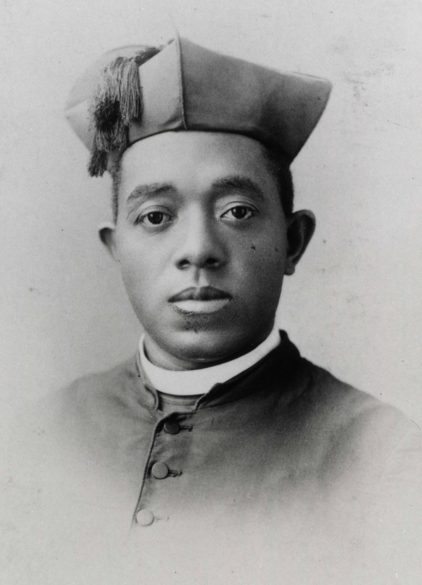
Venerable Augustus Tolton was the first U.S. Roman Catholic priest publicly known to be black when he was ordained in 1886. A former slave who was baptized and reared Catholic, Tolton formally studied in Rome. He was ordained in Rome on Easter Sunday at the Archbasilica of St. John Lateran. Fr. Tolton led the development and construction of St. Monica’s Catholic Church as a black “National Parish Church”, which was completed in 1893. Tolton’s success at ministering to black Catholics quickly earned him national attention within the Catholic hierarchy. “Good Father Gus,” as many called him, was known for his eloquent sermons, his beautiful singing voice, and his talent for playing the accordion. He is the subject of the 1973 biography from Slave to Priest by Sister Caroline Hemesath.
Servant of God Julia Greeley (1833/1848-1918)
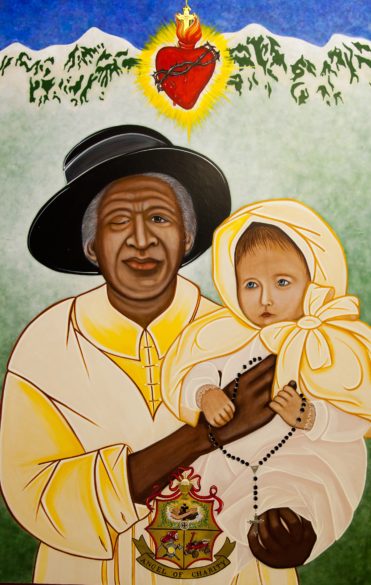
Servant of God Julia Greeley was born into slavery in Hannibal, Missouri sometime between 1833 and 1848. Freed by Missouri’s Emancipation Act in 1865, Julia subsequently earned her keep by serving white families in Missouri, Colorado, Wyoming, and New Mexico—though mostly in the Denver area. Julia entered the Catholic Church at Sacred Heart Parish in Denver in 1880 and was an outstanding supporter of all the parish. The Jesuits who ran the parish considered her the most enthusiastic promoter of devotion to the Sacred Heart of Jesus they had ever seen. Every month she visited on foot every fire station in Denver and delivered literature of the Sacred Heart League to the firemen, Catholics and non-Catholics alike. A daily communicant, Julia had a rich devotion to the Blessed Sacrament and the Blessed Virgin and continued her prayers while working. She joined the Secular Franciscan Order in 1901 and was active in it till her death in 1918. As part of the Cause for Canonization, Julia’s mortal remains were transferred to Denver’s Cathedral Basilica of the Immaculate Conception on June 7, 2017.

Servant of God Sister Thea Bowman, FSPA (1937-1990)
Sister Thea Bowman, FSPA was a self-proclaimed, “old folks’ child.” Bowman was the only child born to middle-aged parents, Dr. Theon Bowman, a physician, and Mary Esther Bowman, a teacher. At birth, she was given the name Bertha Elizabeth Bowman. She was born in 1937 and reared in Canton, Mississippi. As a child, she converted to Catholicism through the inspiration of the Franciscan Sisters of Perpetual Adoration and the Missionary Servants of the Most Holy Trinity who were her teachers and pastors at Holy Child Jesus Church and School in Canton. During her short lifetime, many people considered her a religious sister undeniably close to God and who lovingly invited others to encounter the presence of God in their lives. She is acclaimed as a “holy woman” in the hearts of those who knew and loved her and continue to seek her intercession for guidance and healing.
For more information on Sister Thea’s cause, visit www.sistertheabowman.com.
